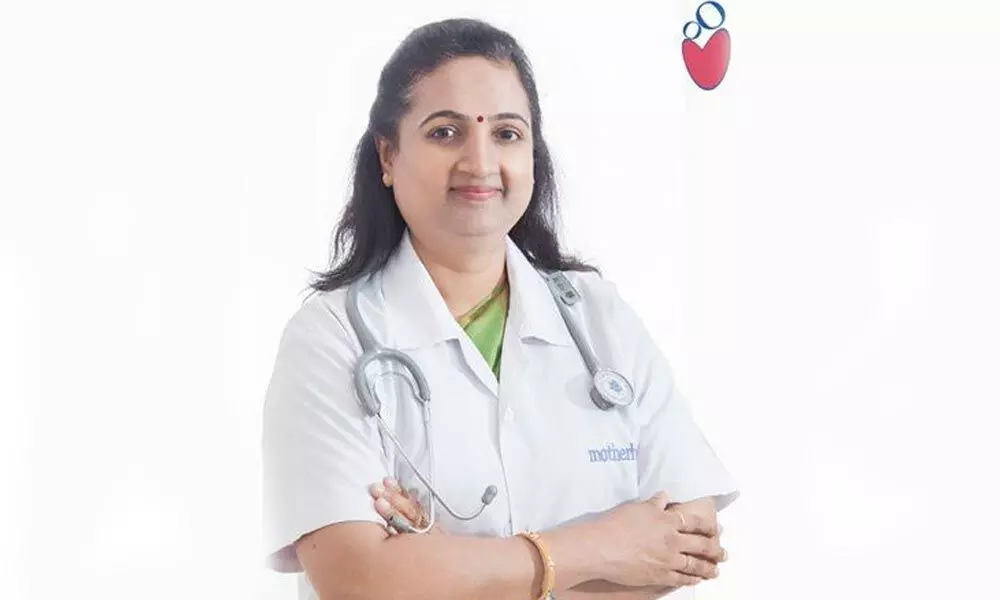Five things that may increase breast cancer risk

Dr Asha Hiremath
The risk for breast cancer is caused by a mix of factors. Being a woman and ageing are the two most important risk factors. In many cases, breast cancers are diagnosed in women over the age of 50.
The risk for breast cancer is caused by a mix of factors. Being a woman and ageing are the two most important risk factors. In many cases, breast cancers are diagnosed in women over the age of 50.
Few women will develop breast cancer despite showing no known risk factors. The presence of a risk factor does not guarantee the presence of the disease, and not all risk factors have the same effect. The majority of women have certain risk factors; however, the majority of women do not develop breast cancer.
People can reduce the chances by avoiding certain risk factors. Obesity is one of the most important health issues. While a rise in weight causes problems with the waistline, cholesterol, and raises the risk of vascular illnesses, it has also been shown that obesity is one of the factors that can enhance an individual's risk of developing breast cancer. Breast cancer is another illness that worsens after menopause when a woman is overweight.
Diet is another essential aspect to consider when assessing one's cancer risk. It has been stated that eating high-fat diets not only contributes to one's obesity risk but is also a major risk factor that determines breast cancer risk. Uncontrolled or poor food choices can result in the formation of fat cells in the body, which can raise estrogen levels. As a result, it's critical to limit or avoid junk food, processed meals, alcohol, meats, added sugar, and refined carbohydrates.
Experts suggest that, similar to the reproductive history, women who start menstruation early before the age of 12 or achieve menopause later have a higher exposure factor to estrogen, which might harm breast tissues. Women who face such risks are encouraged to get more frequent screenings and to be informed about their breast cancer chances.
It is necessary to limit alcohol and tobacco consumption to the bare minimum. According to studies, increasing alcohol use increases the risk of breast cancer. According to estimations, women who take more than one alcoholic drink per day have a 7-10% higher risk of cancer than non-drinking women, and the percentile risk increases as the number of drinks consumed increases. Alcohol usage is linked to a variety of additional risk factors, such as liver damage, addictions, poor mental health, heart disease, high blood pressure, and cholesterol problems.
While having a child or becoming pregnant at any age is a personal choice for women, experts believe that late pregnancies, as well as a greater percentile of women who did not conceive, are at a greater risk of developing breast cancer. With later or no pregnancies, the breast tissue is exposed to a bigger level of estrogen over time, which can surely raise one's risk, especially if other risk factors are present. Women who get pregnant before or around the age of 30 and those who have a higher number of births, on the other hand, may have a lower risk of breast cancer.
There are also some unavoidable risk factors. Dense breasts have more connective tissue than fatty tissue, which might make cancers difficult to identify on mammography. Women with thick breasts are more prone to develop breast cancer. Women who previously have had breast cancer are more likely to have it again.
Women who received radiation therapy to the chest or breasts before the age of 30 have a greater risk of developing breast cancer later in life. Breast cancer risk also increases with age, with the majority of cases detected beyond the age of 50.
You may be at a higher risk of developing breast cancer if you have a strong family history of the disease or inherited alterations in your BRCA1 and BRCA2 genes. In this case, you may potentially be vulnerable to ovarian cancer.
Consult your doctor about options to lower your risks, such as medications that block or reduce estrogen levels in your body or surgery.
(The author is, Consultant Obstetrician & Gynaecologist, Motherhood Hospitals, Bengaluru)









